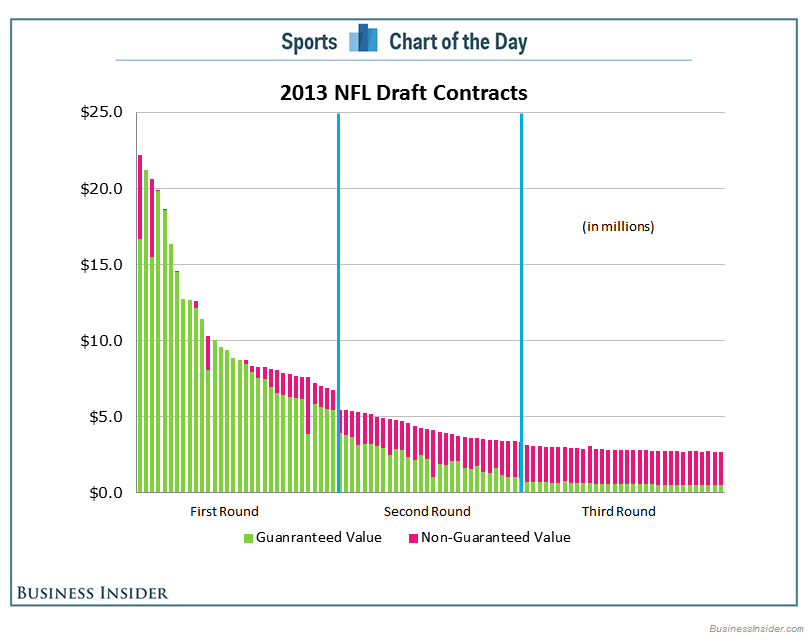The NFL. This Thursday that NFL will perform their annual selection process on ESPN, with their annual draft. Just like you, they have no idea what they’re doing, but act like they figured out the secret sauce to great selection. The big difference between you and the NFL, their mistakes costs them a lot more money! Check out this chart from BI on the NFL Draft Guaranteed Contracts:
This chart basically shows you that the best, or highest, first round pick will get about $22 million guaranteed, while the lower third round picks will get $600k in guaranteed money over the life of their contract.
How would you like that level of possible expense in your selection process!?
All that money, all that time, all that research, and the NFL draft is still basically a crap shoot. The pick people, like you pick people. “Well, we really like Johnny’s football IQ and he just seems so personable! What the hell, let’s pay him $15M!”
What!?!
“Well, we know his ‘past performance’ in college. We know all his ‘performance metrics’. We gave him a personality profile. We ‘feel’ like he’s a safe bet and potential high performer.”
It’s really not that different from you picking a $50,000 per year sales professional. Many organizations put as much into their hiring selections, as the NFL puts into picking their draft selections. Obviously, the NFL has more resources to throw at their process, so they probably have a few more bells and whistles. But, they have no more success than you. The ones who do the best, like you, are not only concerned about the ‘big’ hires/selections – your executive hires, their high first and second round draft picks, but put as much research and resources into each hire. Making a great selection in the 7th round might be as valuable, long term, as making a great first round selection. Just as you making a great entry level sales hire, might be as valuable, or more, to making a really solid Director level hire.
The learning on all of this? You can’t take hires off. There are no ‘throw away’ hires, just as their are no throw away draft picks for great NFL teams.

